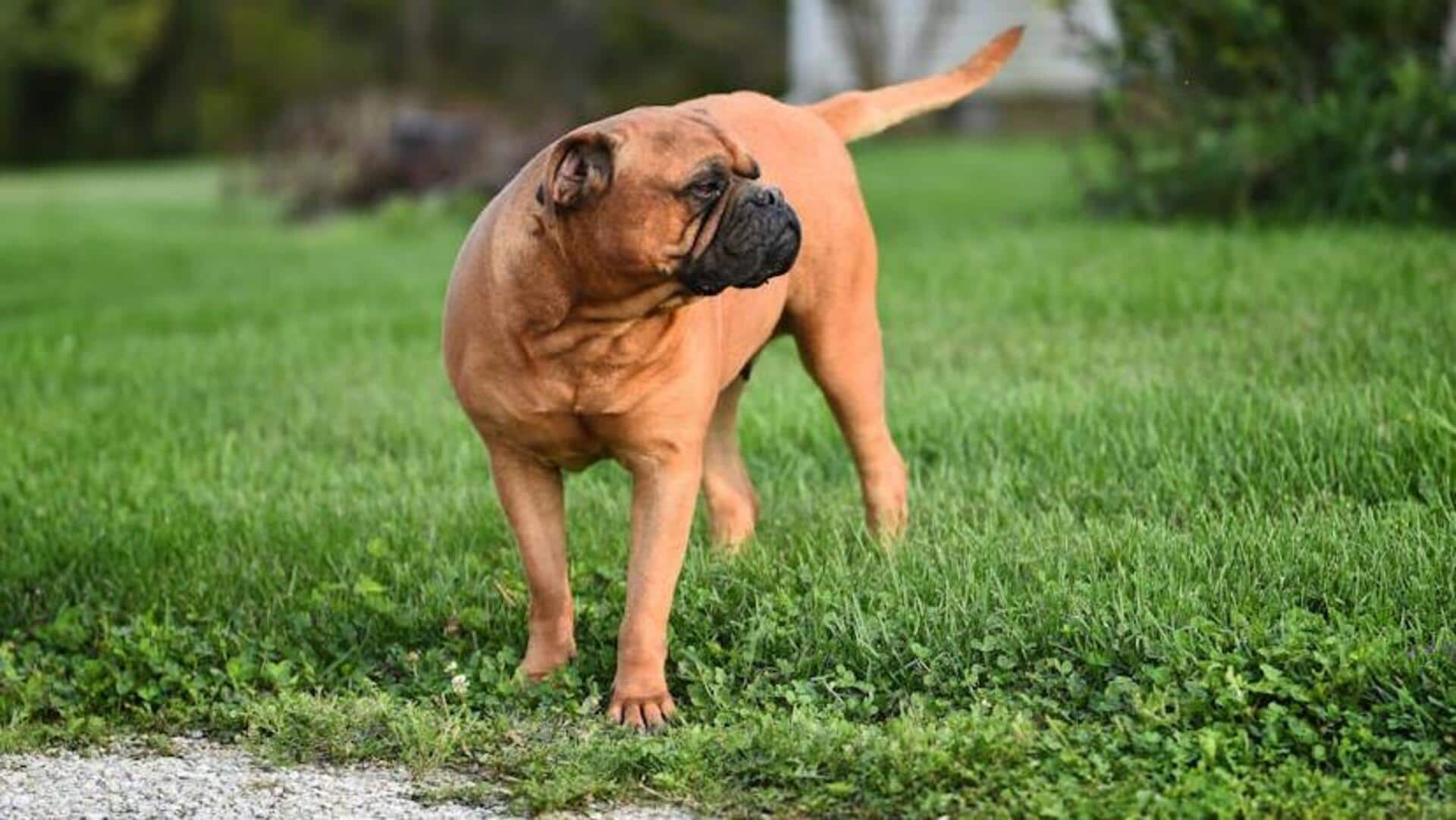
How to ensure joint health in Bullmastiffs
What's the story
The Bullmastiff, a breed known for its impressive strength and loyalty, was originally developed to guard estates. These robust dogs typically weigh in at 100 to 130 pounds, their considerable heft predisposing them to potential joint issues. As such, owners must be proactive in ensuring the health and longevity of their Bullmastiff's joints for the dog's overall well-being.
Tip 1
Balanced diet for strong joints
A balanced diet is essential for Bullmastiff joint health. It should include nutrients that specifically support the joints, such as omega-three fatty acids, glucosamine, and chondroitin. These elements are known to aid in maintaining joint function and integrity. Careful weight management is also critical; excess weight can significantly increase the stress on a Bullmastiff's joints, potentially leading to health issues.
Tip 2
Regular exercise routine
Regular, moderate exercise is essential for a Bullmastiff's joint flexibility and muscle strength. It's important to avoid overexertion, which can lead to joint damage. Suitable low-impact activities include walking and swimming, which are gentle on the joints. These exercises prevent the harsh impacts associated with jumping or running on hard surfaces, thereby safeguarding the Bullmastiff's joint health and ensuring their well-being.
Tip 3
Routine veterinary check-ups
Regular veterinary check-ups are essential for spotting early signs of joint problems in Bullmastiffs. Vets can identify these issues and may recommend specific supplements or medications to support joint health. Additionally, they offer advice on the right amount of exercise to prevent joint wear without overstrain. These proactive visits are a cornerstone in maintaining the Bullmastiff's joint health and overall mobility.
Tip 4
Comfortable resting areas
Ensure your Bullmastiff's resting area features an orthopedic bed to support and cushion their joints. Such beds are particularly beneficial after exercise or in cold weather, which can lead to increased joint discomfort. Orthopedic beds evenly distribute the dog's weight, alleviating pressure on the joints and providing a cozy spot for your pet to rest and recuperate comfortably.